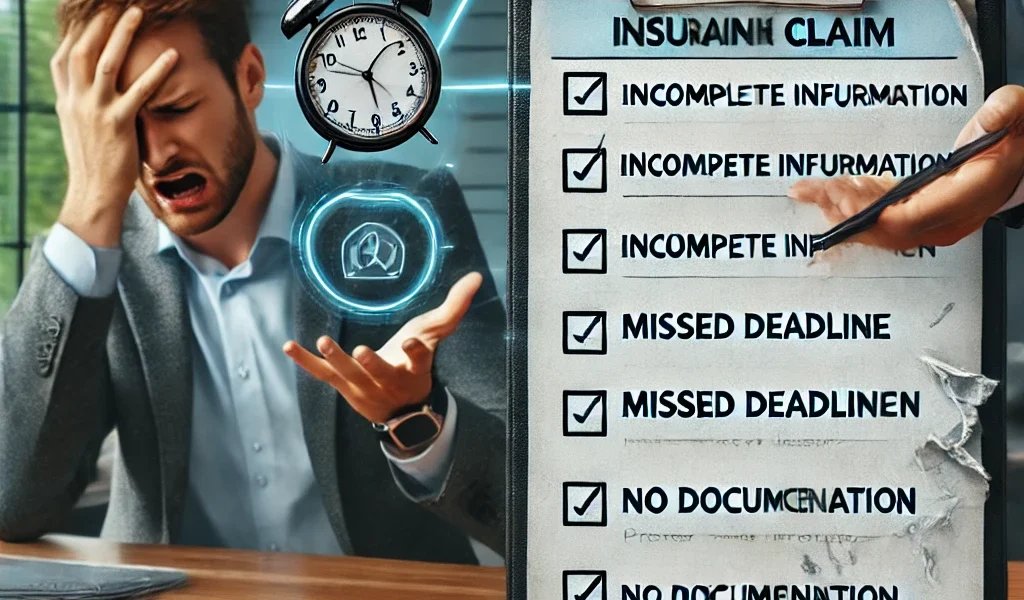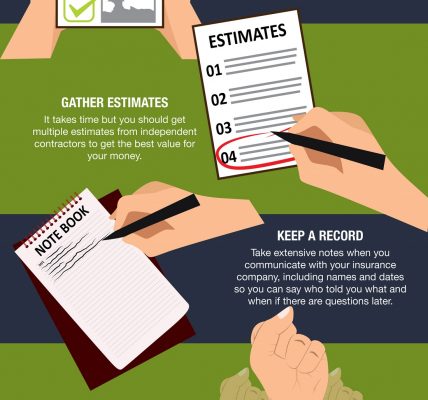Filing an insurance claim can be a stressful experience, especially if you are dealing with a loss, accident, or unexpected expense. However, making mistakes during the process can lead to delays, claim denials, or reduced payouts. To ensure a smooth claim process and maximize your chances of a fair settlement, it’s essential to avoid common pitfalls.
In this guide, we will highlight the most frequent mistakes policyholders make when filing an insurance claim and provide practical tips on how to avoid them.
1. Delaying the Claim Filing Process
One of the most common mistakes is waiting too long to report a claim. Insurance policies often have strict deadlines for filing claims, and any delay can:
- Reduce the chances of a successful claim.
- Make it difficult to gather necessary evidence.
- Lead to claim denial if the deadline is missed.
How to Avoid This Mistake
- Report the claim as soon as possible after the incident.
- Check your policy to understand the time limits.
- Contact your insurance provider immediately, even if you are unsure whether you will proceed with the claim.
2. Failing to Read and Understand the Insurance Policy
Many policyholders file claims without fully understanding their coverage, which can lead to unexpected denials or disputes.
How to Avoid This Mistake
- Carefully read your policy documents before an incident occurs.
- Clarify any doubts with your insurer or agent.
- Make sure you understand exclusions, deductibles, and claim procedures.
3. Providing Incomplete or Inaccurate Information
Incorrect or missing information can delay processing and even lead to claim denial.
How to Avoid This Mistake
- Double-check all details before submitting your claim.
- Ensure accuracy in your personal details, date of the incident, and description of the event.
- Be honest and transparent to avoid any legal complications.
4. Not Documenting the Damage or Loss Properly
Insufficient evidence can weaken your claim and result in a lower settlement or rejection.
How to Avoid This Mistake
- Take clear photos and videos of the damage or loss immediately.
- Gather witness statements if applicable.
- Keep copies of medical reports, police reports, repair estimates, and other supporting documents.
5. Admitting Fault Prematurely
Admitting fault before an official investigation can be used against you by the insurer.
How to Avoid This Mistake
- Stick to the facts when describing the incident.
- Let the insurance adjuster determine liability.
- Avoid making statements that can be misinterpreted as admitting guilt.
6. Accepting the First Settlement Offer Without Review
Insurance companies may offer a quick settlement, but it may not always be in your best interest.
How to Avoid This Mistake
- Review the settlement offer carefully.
- Compare it with repair estimates or medical bills.
- Negotiate if you believe the amount is insufficient.
7. Ignoring the Role of an Insurance Adjuster
An insurance adjuster works for the insurance company, not for you. Their goal is to assess claims and minimize payouts.
How to Avoid This Mistake
- Provide clear and organized evidence to support your claim.
- Be polite but firm in negotiations.
- Consider seeking professional advice if the adjuster undervalues your claim.
8. Failing to Keep Copies of All Communication
Lack of documentation can create confusion and make it difficult to resolve disputes.
How to Avoid This Mistake
- Keep records of emails, letters, and claim forms.
- Note down the date and time of phone calls and the names of representatives spoken to.
- Store all documents in a safe and easily accessible place.
9. Not Following Up on the Claim Status
Many policyholders assume that once they file a claim, the insurance company will handle everything promptly. However, claims can sometimes get delayed due to missing documents or other issues.
How to Avoid This Mistake
- Regularly check on the status of your claim.
- Respond promptly to any requests for additional information.
- Contact your insurer if you experience delays beyond the standard processing time.
10. Filing a Claim for Minor Damages Unnecessarily
Sometimes, filing a claim for minor damages may not be worth it as it could lead to higher premiums in the future.
How to Avoid This Mistake
- Compare the cost of repairs to your deductible before deciding to file a claim.
- Consider covering small expenses yourself if they are close to the deductible amount.
- Assess whether the claim is necessary for long-term financial benefits.
11. Overlooking Policy Exclusions
Insurance policies contain specific exclusions that policyholders often overlook, leading to denied claims.
How to Avoid This Mistake
- Review the list of exclusions in your policy.
- Ask your insurance provider about any unclear terms.
- Consider additional coverage if needed.
12. Misrepresenting Facts or Exaggerating the Claim
Some policyholders may be tempted to exaggerate their claims to receive a higher payout. However, this can be considered fraud and result in severe consequences.
How to Avoid This Mistake
- Always provide honest and accurate information.
- Do not inflate the value of lost or damaged items.
- If unsure, seek professional assistance to evaluate the damages.
13. Not Seeking Professional Assistance When Needed
For complex claims, policyholders may struggle to negotiate with the insurer effectively.
How to Avoid This Mistake
- Consider hiring a public adjuster for large claims.
- Consult a lawyer if you face unfair claim denials or disputes.
- Work with an insurance agent to understand policy terms better.
Final Thoughts
Filing an insurance claim can be a complicated process, but avoiding these common mistakes can help you receive the compensation you deserve without unnecessary delays or disputes. Always read your policy carefully, document everything, and communicate effectively with your insurer to ensure a smooth claims process




